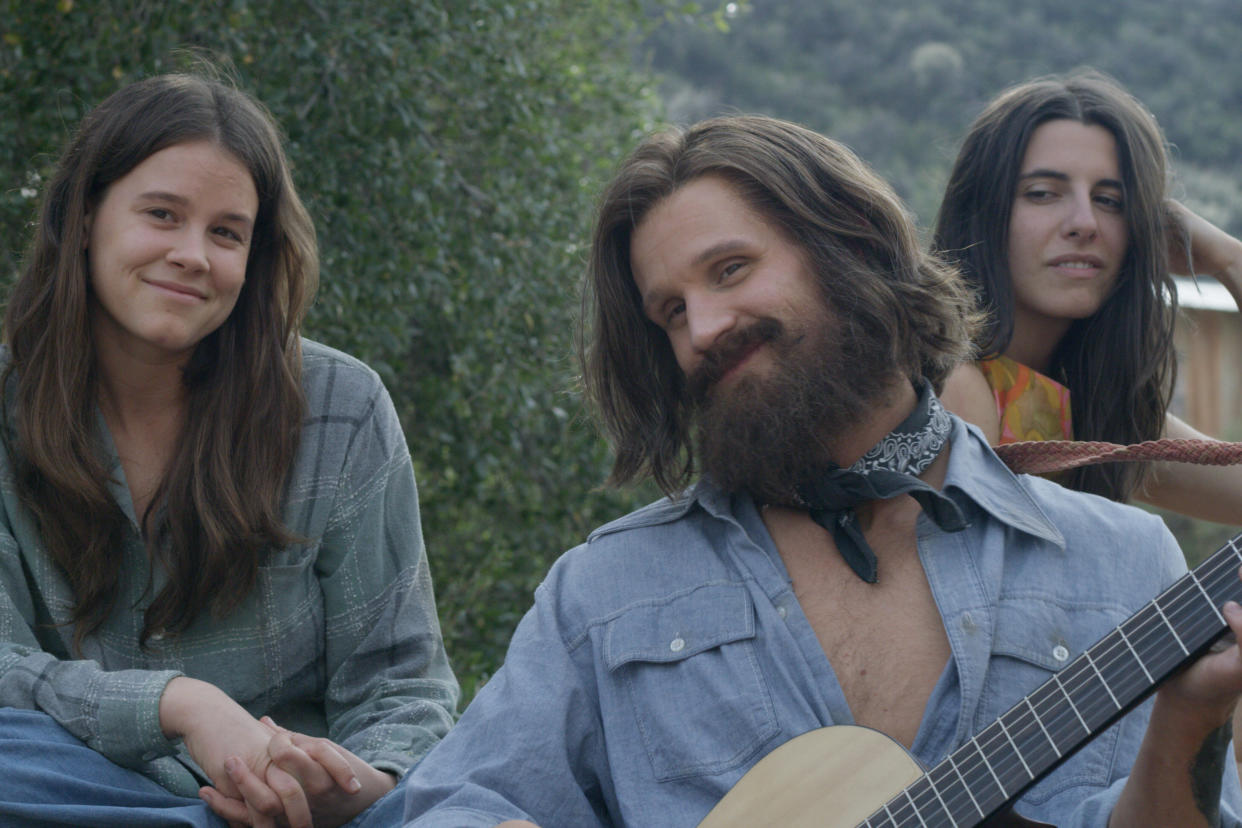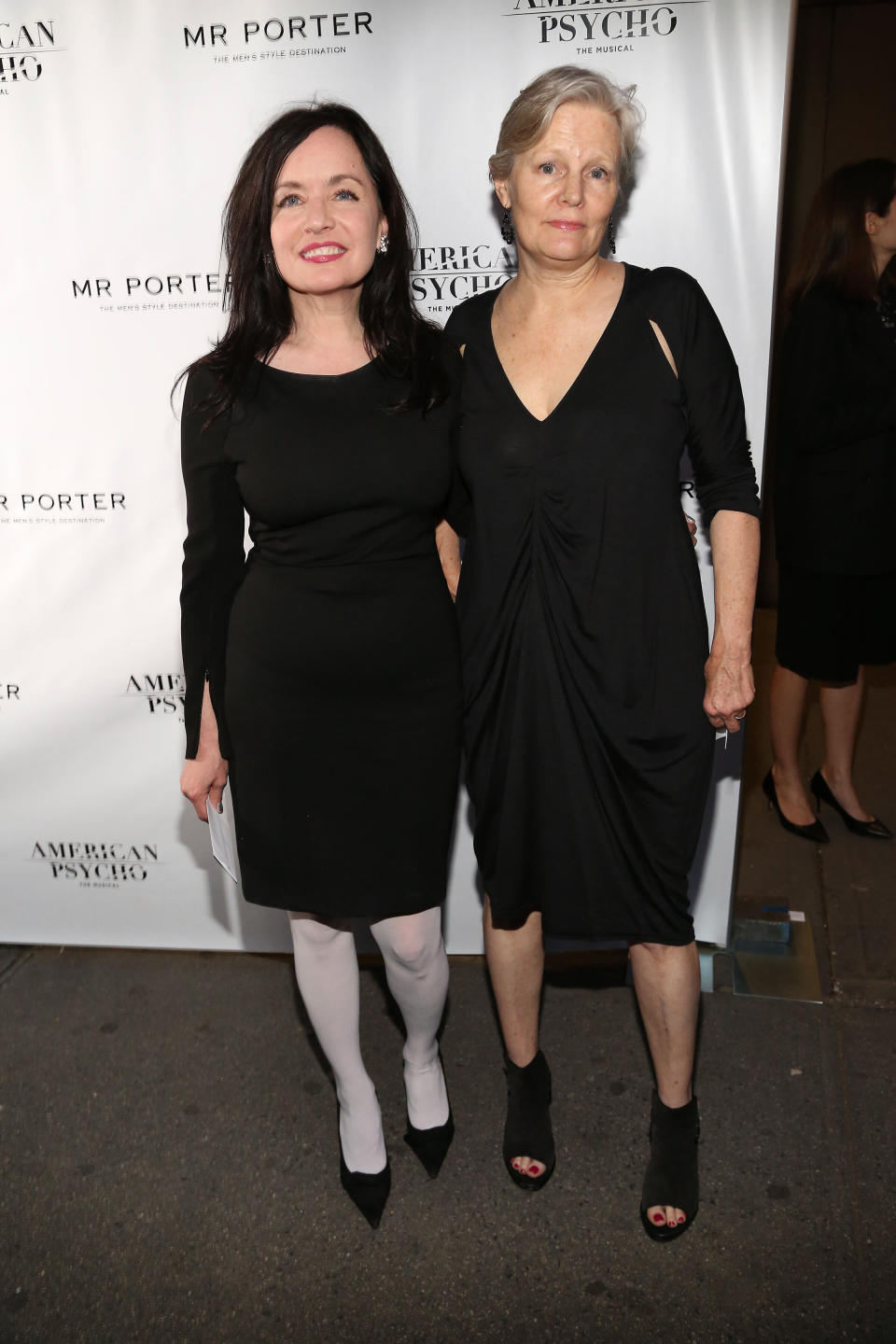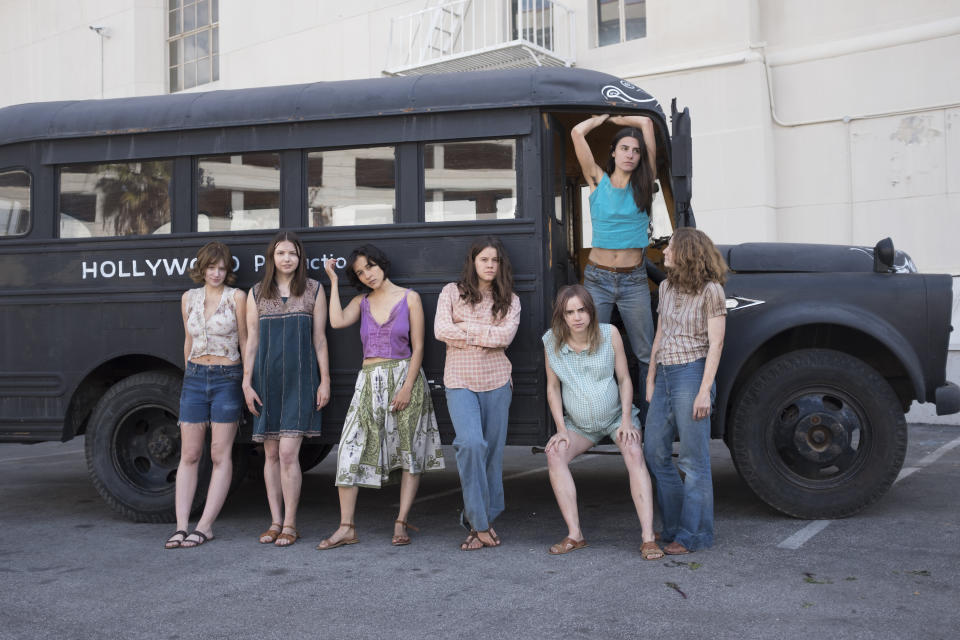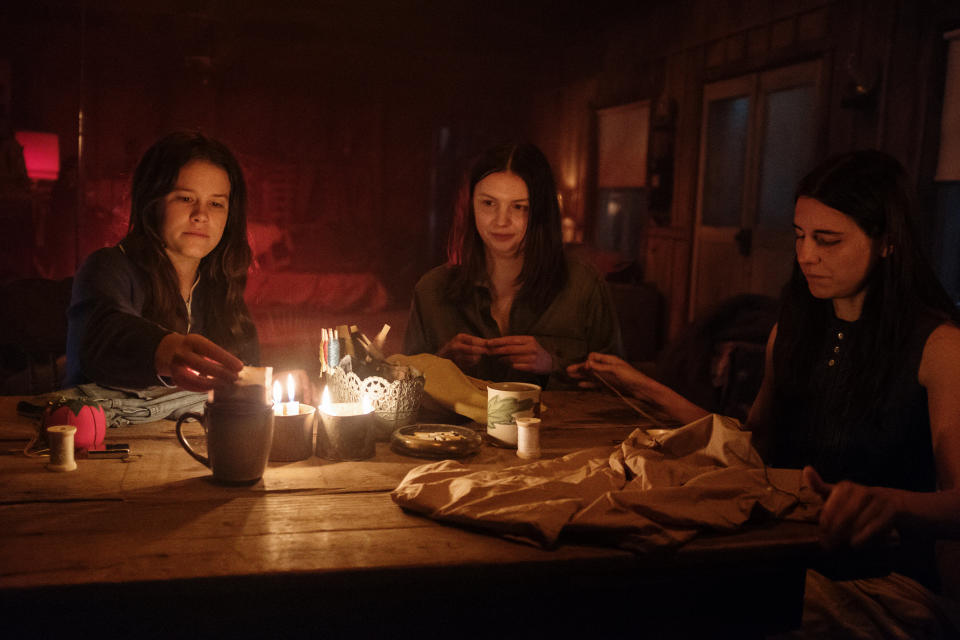Why Charles Manson is having a Hollywood moment right now

Charlie Says writer and director on Manson’s toxic masculinity and narcissistic personality, plus an exclusive clip.
When times feel apocalyptic, people are inclined to believe wild conspiracy theories and end up in thrall to charismatic, often dangerous leaders — like, say, Charles Manson. In Charlie Says, a radical retelling of the well-trod Manson Family saga, director Mary Harron and screenwriter Guinevere Turner dare to ask the question: What if the followers who committed seven grisly murders of complete strangers in 1969 were ordinary, idealistic young people, like any of us at 19 years old? Could the right cultural moment, and the right man, push us to believe the ridiculous and do the unspeakable?
“For a new generation who's really talking about toxic masculinity and looking at narcissistic personalities, this was that, just on a bigger scale,” says Turner. “I mean, [Manson] did all those things: tell you you're beautiful, tell you you're perfect, take that away, give it back, make you want it. That's just how abusive relationships work.”
Watch an exclusive clip from Charlie Says:
One of a trio of new films that use the Manson murders as backdrop (The Haunting of Sharon Tate, starring Hilary Duff, came out last month; Quentin Tarantino’s Once Upon a Time in Hollywood arrives July 26), Charlie Says begins by introducing the audience to Manson acolytes Leslie Van Houten (Hannah Murray), Patricia Krenwinkel (Sosie Bacon) and Susan Atkins (Marianne Rendón), three years into their life prison sentences. Isolated from the other prisoners in adjacent cells, the three women are holding fast to the beliefs that Manson (Matt Smith) taught them, right down to the idea that they will one day become winged elves. That brainwashing is slowly chipped away by feminist activist Karlene Faith (Merritt Wever), who begins visiting the prison to teach women’s studies classes, and eventually forces the Manson girls to confront the horror and meaninglessness of their crimes. In flashbacks from Leslie’s perspective, we see how “Charlie” lured men, women, and even one celebrity into what seemed like a counterculture utopia, where his followers were seduced, indoctrinated and ultimately militarized for Manson’s imagined “race war.”
While many previous Manson Family films have focused on Linda Kasabian (the follower who refused to take part in the violence and became a key witness in the trials), Harron and Turner chose to center their story on Charlie’s inner circle.
“To me, it was very important to focus on the girls who were perpetrators, not to do the story of someone who was just a witness or a bystander, who had sort of fallen by accident into the cult,” said Harron. “To be a serious film, I thought we had to take on the stories of the people that everyone is most horrified by, and just to say, ‘Well, these are human beings. And what were they thinking? What happened to them that they went from here to there?’”

Turner, who previously worked with Harron on the 2000 horror-satire American Psycho, came into the project with a unique perspective. As she detailed in a recent New Yorker article, the screenwriter spent her childhood as part of the Lyman Family, a cult-like commune run by a controlling leader, Mel Lyman, who believed that the end of the world was imminent. In her essay, Turner looks back with a combination of nostalgia and horror.
“It really, sometimes, is just like a family,” Turner told Yahoo of her upbringing in a cult environment. “And Iike I wrote in the essay, there’s just a lot of people and a lot of s**t that needs to get done. Some days everything's beautiful, some days everything's scary, and it's kind of a volatile scenario. At least in that way they were similar, the Manson family and the Lyman family.”
In Charlie Says, the Manson family is a mirror of the larger '60s culture, in which women routinely experienced sexism and spousal abuse, young people were desperate to live more meaningful lives than their parents, and the world was changing so rapidly that it seemed like the end must be near. Harron was drawn to the story, in part, as a way of calling out the sexism of “liberated” counterculture. Even as a young teenager in the ’60s, the director said she realized that the hippie women were not as free as they seemed.

“The hippie ideals were kind of as patronizing as the Victorian ideals,” she said. “You’re the angel of the hearth, you are the Earth mother baking bread, or you were a wild flower out in the field who would have sex with anyone who asked. And if you didn’t want to aspire to either of those roles, hippie culture did not offer a lot of aspiration for you.”
That misogynist ideology was exploited by Manson, who promised his followers total freedom but kept the women in subservient roles. A man who had spent his entire life in prison, Manson was, in Harron’s words, “someone who could only function by creating a small world that he could control.” At any other time in history, he may not have found such a rapt audience for his pop philosophy and apocalyptic predictions.
“It was important to me that this movie takes him down a notch,” said Turner.
To that end, the film doesn’t portray Manson in the typical way, as a beguiling manipulator of Batman-villain proportions. Smith’s cult leader is an appealing but insecure oddball who walks around singing his own goofy pop songs. (“Like many monsters in history, he's a failed artist,” Harron noted.) In that sense, Charlie Says is a welcome break from the “sexy serial killer” trope that has permeated pop culture lately, from Penn Badgley in You to Zac Efron in the Ted Bundy biopic Extremely Wicked, Shockingly Evil and Vile.

“I do think that Ted Bundy probably had something super-intense that was magnetic and terrifying,” said Turner. “I think Charlie was like, the K-mart version of that. He was more of a low-level criminal who found himself in this situation and exploited it.”
After researching Manson extensively, both Turner and Harron question whether he actually thought his followers would even go through with the murders he ordered. (Manson did not participate directly in any of the killings.)
“I think probably after the first night he was like, ‘Oh s**t, I've actually weaponized some humans!” said Turner with a laugh. “I’ve always wondered if he thought they had it in them. Because how could he be? They were just kids and this is not something they’d ever done before. So yeah, he probably was like, ‘Fingers crossed! Gotta start this race war!’”
The choice to humanize Manson and the female murderers is a controversial one. Early reviewers seemed oddly baffled by Turner and Harron’s refusal to demonize their subjects, accusing them of not digging deep enough into the story.

“One [criticism] was, why don't we go into the personal biographies — as if that would explain it!” said Harron. “But everybody there came from such varied backgrounds. Tex Watson, small-town farm boy. Homecoming queen Leslie. Susan was blue-collar.”
“Right, and she had been a stripper, so that's obviously why she killed people,” Turner added with an eye roll. “And Sandy Good came from a wealthy family.”
“So there was this great variety,” said Harron. “And it was both men and women, so you can't explain it through, ‘Oh, this is the linking factor.’ People say, ‘Well, they had father issues.’ Oh, do you know anyone who doesn't? I mean, you think that's going to tell you why they killed strangers in such brutal, barbaric ways?”
“To me, the safer thing would be to say, ‘This thing happened in their childhood,’” said Turner. “But that’s not, to me, the part that's interesting. I want people to see it and say, ‘This could be me, given a certain set of circumstances.’”
Charlie Says opens in theaters today.
Read more from Yahoo Entertainment
'American Psycho' Screenwriter on Patrick Bateman’s Legacy and That Controversial Ending
'To Kill a Mockingbird' star Mary Badham reveals why Barack Obama reminded her of Gregory Peck
'Superman: The Movie' turns 40: Why Christopher Reeve is still the best Man of Steel
Want daily pop culture news delivered to your inbox? Sign up here for Yahoo Entertainment & Lifestyle's newsletter.


